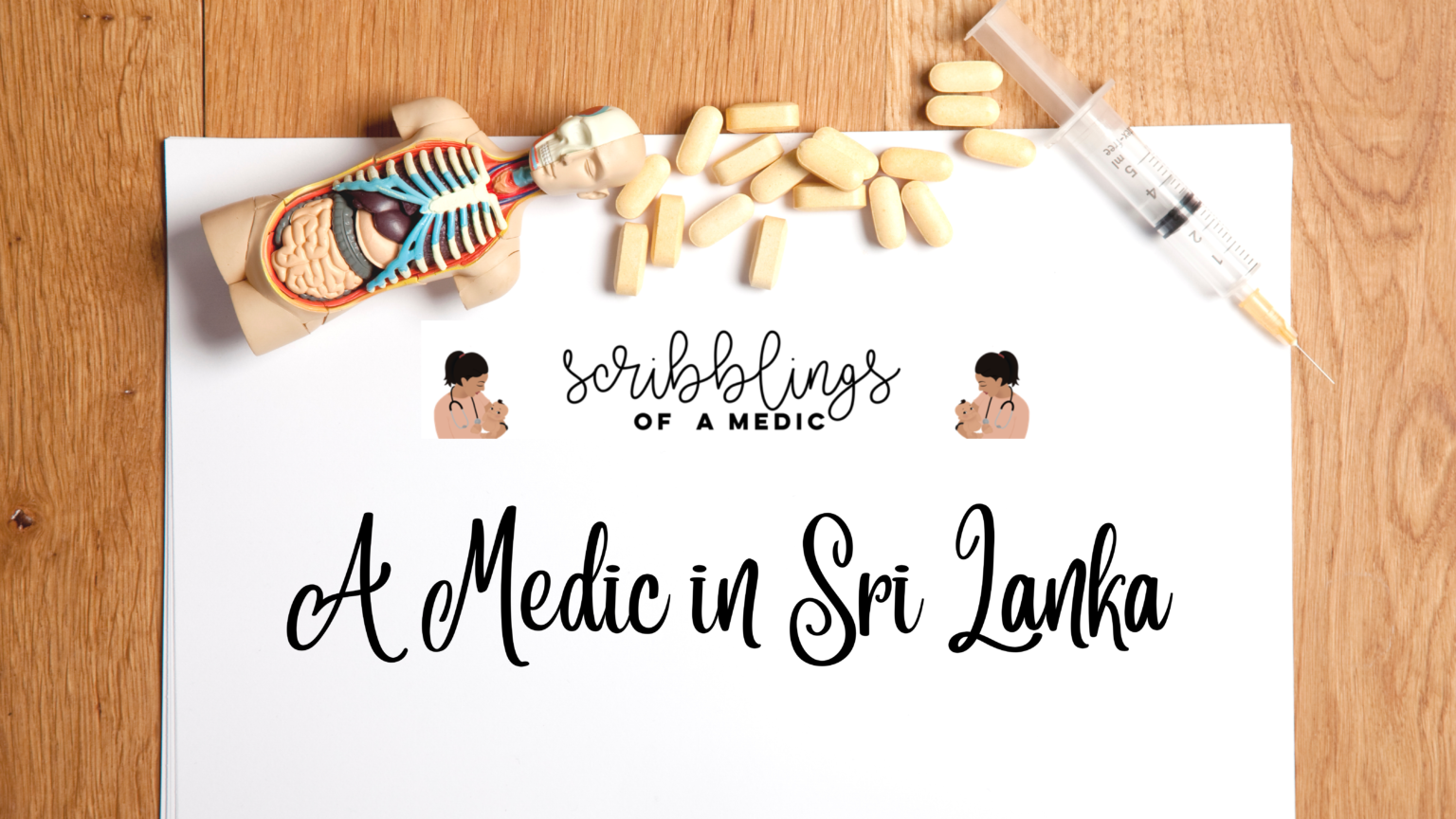ERPM.
Dreaded dreaded jumble of letters that scare the life out of any poor innocent foreign graduate, but I’m here to tell you it ain’t so bad.
ERPM stands for Examination for Registration to Practice Medicine and is the examination required by the Sri Lanka Medical Council in order to be eligible to do your internship (after which you will have permanent registration).
The ERPM exam consists of 4 parts. Part A & D are your theory papers. Part B & C are the practical parts.
Part A is your 4 main subjects (ObGyn, Paeds, Medicine & Surgery) whilst Part D is Forensic Medicine & Community Medicine. I sat all 6 written papers at one go and passed them all so it is possible and I would advice you to do the same. Breaking the written papers up (doing Part A and D at different times) is both time consuming and risky as you are never sure of when the next exam is held. The Medicine and Paediatrics papers have a small amount of Psychiatry included so don’t forget this when you revise.
Part B is the clinical exams for the 4 main subjects (ObGyn, Paeds, Medicine & Surgery) whilst Part C is your emergency vivas, Surgical (ObGyn and surgery) vs Medical (Medicine and Paeds). Again do them all together, I passed them all one go and so can you.
More about each exam in the next blog.
A few basic things to do are listed below.
Can you even sit for the exam?
The first thing to do is to go to the SLMC in person (located strategically on Norris Canal) to find out if your university is recognised in Sri Lanka, because of recent days the SLMC has been criticised for giving under qualified universities permanent recognition and so they have been editing their list.
To get your degree approved (document linked below), you need the following (rough guide):
- Completed application form (obtained from the SLMC)
- Bank Payment slip
- Degree Certificate and copy (Translation and copy if applicable)
- Mark/Grade sheet and copy
- 2 stamp size pics
- O/L and A/L certificates with copies
- Passport/s and copies
*The SLMC regulations change from time to time and so please check with them properly, the above list is only a rough guide as to what you need.
Once you get your approval letter to sit for the exam, you’re good to go!
Notorious D.A.T.E.S.
If recognised the next step would be to find out when the notorious exams. Notorious I say because there is never a set time of the year for the exam and every year is a constant guessing game. So you can never plan properly to have some sort of life whilst preparing for this exam.
Be a team player. Join a class.
I can’t believe I’m saying this, but you got to go for classes. Studying in the british system means I was used to SBAs (single best answer questions), but there are also true/false questions which have negative marking and this was all new to me. (*More about the exams in detail in the next blog).
There are different teachers for each subject and I will include names in another blog (*Disclaimer – none of the teachers are directly/indirectly involved in the ERPM examinations/activities). Most of the teachers have a genuine love for teaching and this shows in the time and effort they take. They do classes on the main topics that would come up in the paper and also do paper revision classes which are really useful. If you feel confident with the syllabus then you can just go straight for the revision classes which are held closer to the date of the exam. The teachers train you in the art of answering the different types of questions.
For the clinical exams, classes are held on examination and viva questions asked for each topic. In addition to this however the best would be to do some work experience in a government hospital (Sri Jayawardenapura used to allow you to shadow certain doctors for a fee or its time to use those contacts your parents have!).
Ready. Set. Go!
This is just the basic information about the ERPM. More blogs will be posted about the classes (including my recommendations), the exams and my experience with the ERPM!
Comment below if you would like to hear about anything else or if there is anything I may have left out!
Useful documents (circa 2015):





